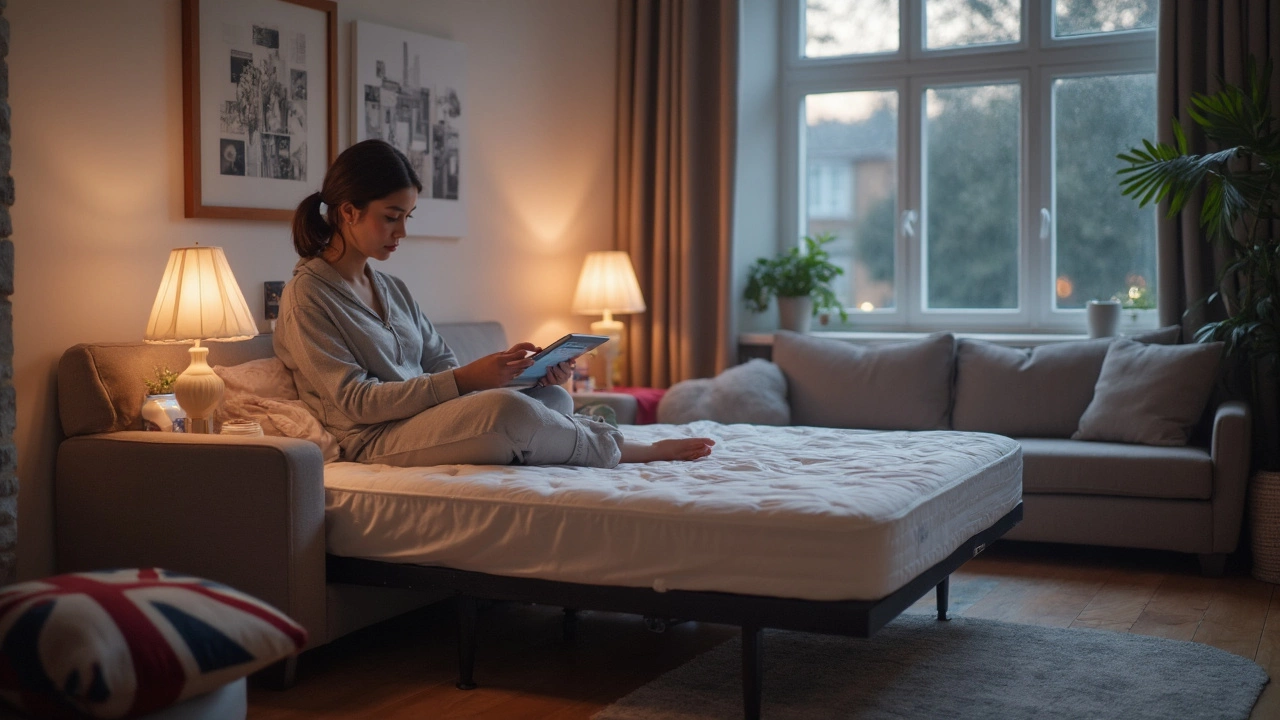Sleep Health: How Your Furniture Impacts Restful Nights
Ever noticed how a squeaky bed or a cramped bedroom can ruin a good night’s sleep? The truth is, the pieces you choose for your sleeping space play a huge role in how well you rest. From the mattress support to the way you store stuff under the bed, small furniture decisions can make big differences for your sleep health.
First off, the foundation matters. A solid frame with a sturdy slat system keeps the mattress from sagging, which means your spine stays aligned. If you’re dealing with a cheap, wobbly frame, you’ll feel it in the morning as a sore back or stiff neck. Look for hardwood or reinforced metal frames – they’re pricier, but the long‑term payoff in better sleep is worth it.
Choosing the Right Bed Frame and Mattress Support
When picking a bed frame, ask yourself three questions: Is it level? Does it breathe? Can it handle my weight? A level frame eliminates pressure points, while good airflow prevents the mattress from overheating. If you have a heavy mattress, opt for a frame with center support beams. Those extra bars spread the load and stop the middle from dipping.
If space is tight, a storage bed can free up floor area, but don’t overload it with boxes. Heavy items can bend the slats and affect mattress stability, hurting your sleep posture. Store lightweight, dry items like extra blankets or seasonal pillows instead of bulky shoes or damp laundry.
Seating, Futons, and Sleep Positions
Futons are popular for small rooms, but sleeping on them every night can strain your hips if the mattress is too thin. Choose a futon with at least three‑inch high, high‑density foam for proper support. Rotate it weekly to avoid uneven wear. If you like to lounge before bedtime, a low‑profile sofa that converts to a futon works, just make sure the cushioning stays firm enough for sleeping.
Don’t forget about bedroom chairs. A recliner might be perfect for reading, but if you fall asleep in it often, make sure it has good lumbar support. A lack of proper back support can carry over into your sleep posture, leading to restless nights.
Lastly, keep the bedroom clutter‑free. A tidy room reduces stress and makes it easier to wind down. Use wall‑mounted shelves or a compact bookcase to store items without crowding the floor. A clear space encourages a calm mindset, which is essential for falling asleep faster.
In short, the right furniture choices are a simple way to boost your sleep health. Check your bed frame’s stability, pick a supportive futon if you need one, and store items wisely. Small tweaks now can mean waking up refreshed tomorrow.
Are Sofa Beds Healthy? The Real Science Behind Sleeping on a Sofa Bed
Not sure if sleeping on a sofa bed is actually good for you? This article breaks down what makes sofa beds healthy or not, including how they affect your back, sleep quality, and posture. Get tips for picking and using a sofa bed that won't mess with your health. Forget myths—you'll get honest, research-driven answers to find out how to make sofa beds work for your body.
More
